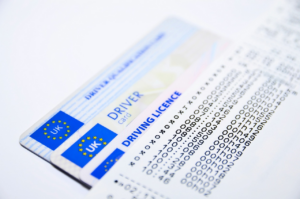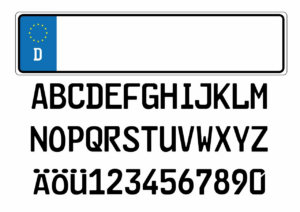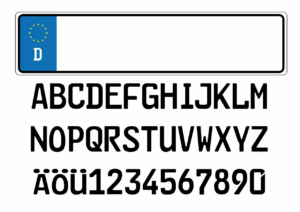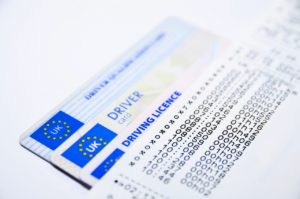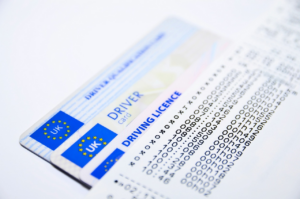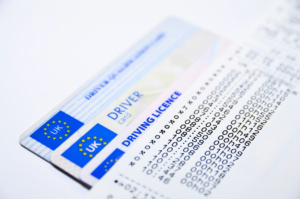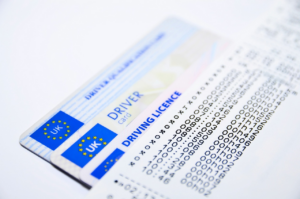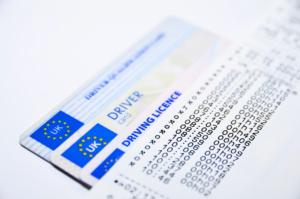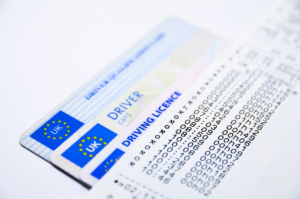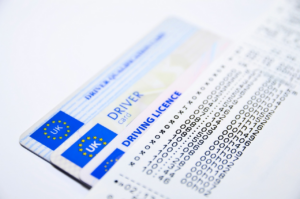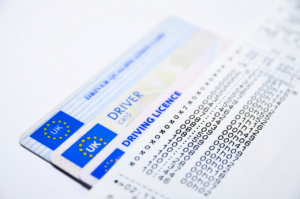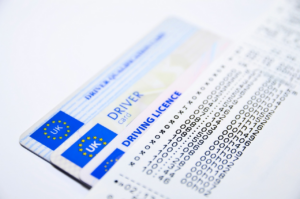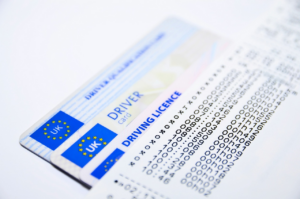Welcome to the Indiana DMV Exam Complete Guide!
This comprehensive guide will help you prepare for the Indiana driver’s license exam, providing you with all the necessary information, rules, and regulations you need to know to pass with flying colors.
Whether you are a new driver, have moved to Indiana from another state, or simply want to refresh your knowledge, this guide has got you covered.
The Indiana DMV Exam covers a wide range of topics, from traffic laws and regulations to defensive driving techniques, driving maneuvers, road and weather conditions, and vehicle maintenance and safety.
With so much information to learn and remember, it can be overwhelming to prepare for the exam. But don’t worry, this guide will break down each topic and provide you with clear and concise explanations, as well as practice questions and simulations to help you test your knowledge and build your confidence.
So let’s get started and ace that exam!
Overview of the Indiana DMV Exam
You’re about to get a sneak peek into what you can expect when taking the Indiana DMV Exam, so buckle up and get ready to learn all about it.
The exam is a comprehensive assessment of your knowledge of the rules of the road and safe driving practices. It is designed to test your understanding of Indiana traffic laws, road signs, and driving techniques.
The Indiana DMV Exam consists of two parts: a written test and a driving test.
The written test is taken on a computer and consists of 50 multiple-choice questions, covering topics such as traffic laws, road signs, and safe driving practices. You must answer at least 40 questions correctly to pass the written test.
The driving test assesses your ability to operate a vehicle safely and includes a pre-drive check, maneuverability test, and on-road driving test.
Rules of the Road
Knowing the rules of the road is crucial for any driver to ensure their safety and the safety of others on the road. As you prepare to take the Indiana DMV exam, it’s important to brush up on the rules of the road to ensure you’re fully prepared for any questions that may come your way.
Here are four key rules to keep in mind:
-
Always obey traffic signals and signs, including stop signs, yield signs, and traffic lights. Failure to do so can result in accidents and traffic violations.
-
Always yield to pedestrians, bicyclists, and other vehicles when necessary. This includes when making turns or merging onto a highway.
-
Always maintain a safe following distance behind the vehicle in front of you. This helps prevent rear-end collisions and allows for enough time to react to sudden stops or changes in traffic patterns.
-
Always use your turn signals when turning or changing lanes. This alerts other drivers to your intentions and helps prevent accidents.
By following these rules of the road and thoroughly studying the Indiana DMV driver’s manual, you can feel confident in your ability to pass the exam and become a safe, responsible driver. Remember, safety should always be your top priority when operating a vehicle on the road.
Defensive Driving Techniques
Get ready to learn some defensive driving techniques to ensure your safety and the safety of your passengers on the road. Defensive driving is all about being aware of your surroundings and anticipating potential dangers. It’s about being proactive and taking measures to avoid accidents before they happen.
One of the most important techniques in defensive driving is keeping a safe distance from other vehicles on the road. You should always maintain a minimum of three seconds of following distance between you and the vehicle in front of you. This will give you enough time to react if the driver in front of you suddenly stops or swerves.
Additionally, you should always be aware of your blind spots and check your mirrors frequently to make sure there are no cars in your blind spots. By practicing these techniques, you can greatly reduce your risk of getting into an accident and keep yourself and your passengers safe.
Driving Maneuvers
Now, let’s talk about some important driving maneuvers you need to master. These maneuvers are essential for safe and efficient driving on the road. You’ll need to practice them regularly to become confident and skilled in executing them.
The maneuvers you need to master are parallel parking, the three-point turn, and lane changes.
Parallel Parking
You’re probably dreading the parallel parking section, but don’t worry, we’ve got some tips to make it a breeze. First, take a deep breath and relax. Remember, this is just one part of the exam and you’ve got this!
The key to acing parallel parking is to take your time and use your mirrors. Position your car parallel to the one in front of the parking spot, then slowly back up while turning your steering wheel towards the curb. Keep an eye on your mirrors and stop when you’re at a 45-degree angle.
Straighten out your wheels and continue to back up until you’re fully parked. It may take a few tries to get it right, but with practice, you’ll be a parallel parking pro in no time!
Three-Point Turn
Let’s tackle the Three-Point Turn, an essential maneuver that requires patience and precision. This maneuver may seem daunting at first, but with practice, you can master it. Here are some tips to help you:
-
Find a safe and legal location to practice the Three-Point Turn. Look for an area with little traffic and enough space to maneuver your vehicle.
-
Begin by signaling right and pulling over to the right side of the road. Make sure to check your mirrors and blind spots before doing so.
-
Shift your vehicle into reverse and look behind you to make sure the way is clear.
-
Turn the steering wheel all the way to the right and slowly back up until your vehicle is at a 45-degree angle to the curb.
Next, turn the steering wheel all the way to the left and slowly move forward until your vehicle is parallel to the curb. Finally, turn the steering wheel all the way to the right and back up to complete the Three-Point Turn.
Remember to use your turn signals and check for traffic before moving back onto the road. With practice and patience, you’ll master this maneuver and feel confident on the road.
Lane Changes
Changing lanes can be a nerve-wracking experience, but with these tips, you’ll be able to confidently navigate the roads and make safe lane changes.
First, make sure to use your turn signal at least 100 feet before you intend to change lanes. This gives other drivers ample time to anticipate your move and adjust their own driving accordingly.
Additionally, always check your mirrors and blind spots before making a lane change. This will help you avoid colliding with other vehicles that may be in your path.
Secondly, it’s important to maintain a safe speed when changing lanes. Do not abruptly cut in front of another vehicle, as this can cause a dangerous situation. Instead, wait until you can safely merge into the lane with enough space between you and the other vehicle.
Remember, you should never change lanes in the middle of an intersection or on a curve, as this can also be extremely dangerous.
By following these tips, you’ll be able to confidently and safely change lanes while driving on Indiana roads.
Road and Weather Conditions
When driving in inclement weather, you need to be extra cautious and aware of your surroundings. Wet or icy roads can make it difficult to maintain control of your vehicle, so slow down and increase your following distance.
Additionally, you should know how to handle road obstructions, such as fallen trees or debris, to avoid causing an accident or becoming stranded.
Driving in Inclement Weather
Driving in bad weather can be terrifying, especially if you’re not prepared for it. Rain, snow, hail, and fog can all make the roads more treacherous and increase the likelihood of accidents. To stay safe and confident behind the wheel, follow these tips:
-
Slow down: It’s important to reduce your speed in inclement weather. This will give you more time to react to unexpected situations and help you maintain control of your vehicle.
-
Increase your following distance: In poor weather conditions, it’s important to leave extra space between your car and the vehicle in front of you. This will give you more time to brake and avoid a collision.
-
Use your headlights: Turn on your headlights to help you see the road and make yourself more visible to other drivers.
-
Avoid sudden movements: Abrupt turns, hard braking, and sudden acceleration can cause your car to skid or slide. Try to drive as smoothly as possible to maintain traction.
-
Check your tires: Make sure your tires are properly inflated and have adequate tread. Bald or underinflated tires can reduce your ability to control your vehicle.
By following these guidelines, you can navigate bad weather with confidence and keep yourself and other drivers safe. Remember, it’s always better to arrive late than to not arrive at all.
Driving on Wet or Icy Roads
As you navigate the wet or icy roads, the slick surface can feel like you’re driving on a slippery slope, making it crucial to adjust your driving habits accordingly.
When driving on wet or icy roads, it’s important to slow down and leave plenty of space between you and the car in front of you. This will give you ample time to react if the car in front of you suddenly stops or slides on the slick surface.
In addition to slowing down, it’s also important to avoid sudden movements, such as quick turns or sudden braking. These actions can cause your car to lose traction and slide on the slick surface. Instead, make slow and deliberate movements, giving your car time to respond to your actions.
Remember, it’s better to arrive at your destination a few minutes later than to get into an accident due to reckless driving on wet or icy roads.
Handling Road Obstructions
Navigating road obstructions can be a challenging task, but with these tips, you can handle them like a pro. When faced with an obstruction on the road, the first thing you should do is slow down and assess the situation. This will give you enough time to react and avoid any potential collisions.
If the obstruction is stationary, such as a tree branch or debris, try to go around it if it’s safe to do so. However, if the obstruction is moving, such as an animal or pedestrian, come to a complete stop and wait for it to pass before continuing on your way.
Another important factor to consider when handling road obstructions is to maintain a safe distance from other vehicles on the road. This means keeping a safe distance from the vehicle in front of you, so that you have enough time to react if they suddenly brake or swerve to avoid an obstruction.
Additionally, when driving on narrow roads or bridges, be sure to stay in your lane and avoid crossing over into the opposite lane, even if it means slowing down or coming to a complete stop. Remember, safety should always be your top priority when driving, especially when navigating road obstructions.
Vehicle Maintenance and Safety
You need to make sure your vehicle is safe to drive by performing regular maintenance checks. This includes checking your brakes, tire pressure, and oil levels.
It is crucial to always wear your seat belt and make sure your child’s car seat is properly installed.
Impaired driving, whether it’s from drugs or alcohol, is extremely dangerous and can have severe consequences.
Remember, taking care of your vehicle and practicing safe driving habits can help keep you and others on the road safe.
Regular Maintenance Checks
Make sure to keep up with regular maintenance checks to ensure your vehicle stays in top shape and avoid any unexpected issues on the road. Regular maintenance checks don’t have to be complicated or time-consuming, but they can save you a lot of trouble in the long run.
Here are a few things to keep in mind when performing regular maintenance checks:
-
Check your fluids: Make sure to check your oil, coolant, brake fluid, and transmission fluid regularly. Low levels of any of these fluids can cause serious damage to your engine or transmission.
-
Inspect your tires: Check your tire pressure and tread depth regularly. Low tire pressure can cause poor handling and decreased fuel efficiency, while worn tires can be dangerous in wet or slippery conditions.
-
Look under the hood: Take a look under the hood and inspect your battery, belts, and hoses. Any signs of wear or damage could indicate a potential problem.
By keeping up with these basic maintenance checks, you can ensure that your vehicle stays in top shape and runs smoothly on the road. Remember, regular maintenance checks can save you time and money in the long run, so don’t overlook them.
In addition to these basic checks, it’s a good idea to follow your vehicle manufacturer’s recommended maintenance schedule. This can include things like replacing your air filter, spark plugs, and timing belt at specific intervals. By following these guidelines, you can ensure that your vehicle is running at its best and avoid any unexpected breakdowns or repairs.
Seat Belt and Car Seat Use
Buckle up, parents! In this section, we’ll explore the importance of seat belt and car seat use to keep your little ones safe while on the road. According to the Indiana DMV, seat belts can reduce the risk of fatal injury by up to 45% for front seat passengers and up to 60% for back seat passengers. It’s crucial to make sure everyone in the car is wearing a seat belt, regardless of age or seating position.
For children, car seats are essential to ensure their safety while riding in a vehicle. The Indiana DMV recommends that children under the age of 8 and under 4 feet 9 inches tall should be secured in a child restraint system appropriate for their size and weight. Here’s a helpful table to guide you in choosing the right car seat for your child:
| Age | Type of Car Seat |
|---|---|
| Infants | Rear-facing car seat |
| Toddlers | Forward-facing car seat |
| Preschoolers | Booster seat |
| Children over 8 years old | Seat belt |
Remember, using seat belts and car seats correctly can make all the difference in a car accident. Make sure to follow the Indiana DMV guidelines and always buckle up for safety.
Impaired Driving
Let’s take a closer look at the dangers and consequences of driving while under the influence of drugs or alcohol. It’s important to understand that impaired driving isn’t only illegal, but it puts yourself and others at risk.
Here are some things to consider:
- Impaired driving can lead to accidents, injuries, and even death.
- The legal consequences can be severe, including fines, license suspension, and jail time.
- The effects of alcohol and drugs on your body can impair your judgment, coordination, and reaction time.
Even if you feel fine to drive, you may still be over the legal limit and putting others in danger.
It’s not worth the risk – always have a designated driver or plan for alternative transportation.
Don’t let impaired driving ruin your life or someone else’s. Always make responsible choices and prioritize safety on the road. Remember, it’s not just about you – it’s about everyone around you. Stay sober and stay safe.
Practice Questions and Simulations
When preparing for your Indiana DMV exam on Vehicle Maintenance and Safety, it’s important to practice with sample exam questions and simulation exercises. This will help you familiarize yourself with the types of questions that may be asked and the format of the exam.
Additionally, it’s important to keep in mind helpful tips for exam day. Make sure to arrive early, bring all necessary documents, and stay calm and focused during the test.
Sample Exam Questions
You’ll find valuable practice questions in this section that will help you prepare for the test and increase your chances of passing. These sample exam questions are designed to give you a feel for what the actual test will be like. They cover a range of topics, including road signs, traffic laws, and safe driving practices.
It’s important to note that the questions on the actual exam may be different from the ones in these practice tests. However, practicing with these sample questions can help you identify areas where you need to study more and become more confident in your knowledge.
Make sure to review the explanations for each answer, even for the questions you got right, as they can provide additional insight and help you avoid making similar mistakes in the future.
Keep practicing until you feel confident in your ability to pass the Indiana DMV exam.
Simulation Exercises
Get ready to test your driving skills with the simulation exercises in this section. They’re designed to help you become a more confident and proficient driver. These exercises simulate real-life driving scenarios, allowing you to practice and improve your driving skills in a safe and controlled environment.
Here are three simulation exercises that you can try:
-
Lane Change Simulation: This exercise simulates a scenario where you need to change lanes on a busy highway. You’ll need to check your mirrors and blind spots, signal your intention to change lanes, and safely merge into the other lane.
-
Intersection Simulation: This exercise simulates a scenario where you need to navigate through a busy intersection. You’ll need to pay attention to traffic signals, yield to other vehicles as necessary, and make safe and timely turns.
-
Parking Simulation: This exercise simulates a scenario where you need to parallel park your vehicle. You’ll need to carefully position your vehicle, use your mirrors and rearview camera to guide you, and maneuver your vehicle into the designated parking space.
By practicing these simulation exercises, you can gain the skills and confidence you need to pass the Indiana DMV exam and become a safe and skilled driver on the road.
Tips for Exam Day
You’re ready for exam day and want to make sure you ace it – these tips will help you feel confident and prepared.
First, make sure you get a good night’s sleep and eat a nutritious breakfast. Your brain needs fuel to function at its best, and being well-rested will help you stay alert during the exam.
Next, arrive early to the DMV and bring all necessary documents, such as your driver’s license and proof of insurance. Being organized and prepared will help you feel calm and focused.
During the exam, read each question carefully and take your time. If you’re unsure of an answer, skip it and come back to it later. And don’t forget to breathe – taking deep breaths can help you stay calm and focused.
With these tips in mind, you’re sure to do your best on the Indiana DMV exam.
Additional Resources
Don’t miss out on some extra help by checking out the Additional Resources section. The Indiana DMV offers a variety of resources to help you prepare for the exam and improve your chances of passing.
Here are some of the resources you can find:
-
The Indiana Driver’s Manual: This is the official guide to safe driving in Indiana. It covers the rules of the road, traffic signs, and safety tips. You can download a digital copy of the manual from the Indiana BMV website or pick up a hard copy at a local BMV office.
-
Online Practice Tests: The Indiana BMV offers online practice tests that simulate the real exam. These tests are designed to help you get familiar with the exam format and the types of questions you will encounter. You can take the practice tests as many times as you want, and they are completely free.
In addition to these resources, there are also many third-party websites and apps that offer study materials and practice tests. Just be sure to use reliable sources and double-check any information you find.
With a little extra studying and preparation, you can feel confident and ready to pass the Indiana DMV exam.
Frequently Asked Questions
What is the passing rate for the Indiana DMV exam?
Passing the Indiana DMV exam is crucial if you want to obtain your driver’s license in the state. The passing rate for the exam is 84%, which means you must answer at least 42 out of 50 questions correctly to pass.
The exam covers topics such as traffic laws, road signs, and safe driving practices. It’s important to study and prepare thoroughly for the exam to increase your chances of passing. You can find study materials and practice tests online or at your local DMV office.
Remember to stay focused and confident on exam day, and you’ll be on your way to becoming a licensed driver in Indiana.
How long does it take to schedule a DMV exam appointment in Indiana?
If you’re looking to schedule a DMV exam appointment in Indiana, it typically takes anywhere from a few days to a few weeks. The exact wait time will depend on the availability of exam slots at your local DMV office.
To schedule an appointment, you’ll need to visit the Indiana BMV website or call their customer service line. Keep in mind that certain exams, such as the driving skills test, may have longer wait times than others.
If you’re in a hurry to take your exam, consider checking for cancellations or rescheduling your appointment to an earlier date.
Are there any age restrictions for taking the DMV exam in Indiana?
To take the DMV exam in Indiana, you must be at least 16 years old. However, if you are between 16 and 18 years old, you must have held a valid learner’s permit for at least 180 days and completed at least 50 hours of supervised driving, including 10 hours at night, before you can take the DMV exam.
Additionally, if you are 75 years old or older, you must renew your driver’s license in person and take a vision test. It’s important to meet these age requirements before scheduling your DMV exam appointment to avoid any delays or complications in the process.
Can I bring my own vehicle for the driving portion of the DMV exam?
You can bring your own vehicle for the driving portion of the DMV exam in Indiana. However, it’s important to make sure that your vehicle meets all the necessary requirements. These include having valid registration and insurance, functional turn signals and headlights, and properly functioning brakes.
Additionally, your vehicle will be inspected by the examiner before the driving test to ensure that it meets safety standards. If your vehicle doesn’t meet these requirements, you won’t be allowed to use it for the exam and will need to reschedule.
What is the consequence for failing the DMV exam in Indiana?
Failing the DMV exam in Indiana can be frustrating and may delay your ability to obtain your driver’s license.
If you fail the written exam, you can retake it immediately or within a certain timeframe depending on the reason for failure. However, if you fail the driving portion of the exam, you will need to wait at least 14 days before retaking it.
Additionally, you will need to pay a fee for each attempt at the driving exam. It’s important to take the time to adequately prepare for both the written and driving portions of the exam to increase your chances of passing on the first attempt.
Conclusion
Congratulations! You’ve now completed the complete guide to the Indiana DMV Exam. By following this guide, you’ve gained a solid understanding of all the knowledge and skills required to pass your DMV exam with flying colors.
Remember to always adhere to the rules of the road, practice defensive driving techniques, and be familiar with all driving maneuvers.
Furthermore, it’s crucial to be aware of road and weather conditions, maintain your vehicle regularly, and always prioritize safety. By doing so, you’ll not only pass your DMV exam but also become a responsible and safe driver.
Don’t forget to utilize the practice questions and simulations provided in this guide to further reinforce your knowledge.
We wish you the best of luck on your DMV exam!



